第79章
If we look deeper into the nature of things, a virtuous friend seems to be naturally desirable for a virtuous man. For that which is good by nature, we have said, is for the virtuous man good and pleasant in itself. Now life is defined in the case of animals by the power of perception in that of man by the power of perception or thought;and a power is defined by reference to the corresponding activity, which is the essential thing; therefore life seems to be essentially the act of perceiving or thinking. And life is among the things that are good and pleasant in themselves, since it is determinate and the determinate is of the nature of the good; and that which is good by nature is also good for the virtuous man (which is the reason why life seems pleasant to all men); but we must not apply this to a wicked and corrupt life nor to a life spent in pain; for such a life is indeterminate, as are its attributes. The nature of pain will become plainer in what follows. But if life itself is good and pleasant (which it seems to be, from the very fact that all men desire it, and particularly those who are good and supremely happy; for to such men life is most desirable, and their existence is the most supremely happy) and if he who sees perceives that he sees, and he who hears, that he hears, and he who walks, that he walks, and in the case of all other activities similarly there is something which perceives that we are active, so that if we perceive, we perceive that we perceive, and if we think, that we think; and if to perceive that we perceive or think is to perceive that we exist (for existence was defined as perceiving or thinking); and if perceiving that one lives is in itself one of the things that are pleasant (for life is by nature good, and to perceive what is good present in oneself is pleasant); and if life is desirable, and particularly so for good men, because to them existence is good and pleasant for they are pleased at the consciousness of the presence in them of what is in itself good); and if as the virtuous man is to himself, he is to his friend also (for his friend is another self):-if all this be true, as his own being is desirable for each man, so, or almost so, is that of his friend. Now his being was seen to be desirable because he perceived his own goodness, and such perception is pleasant in itself. He needs, therefore, to be conscious of the existence of his friend as well, and this will be realized in their living together and sharing in discussion and thought; for this is what living together would seem to mean in the case of man, and not, as in the case of cattle, feeding in the same place.
If, then, being is in itself desirable for the supremely happy man (since it is by its nature good and pleasant), and that of his friend is very much the same, a friend will be one of the things that are desirable. Now that which is desirable for him he must have, or he will be deficient in this respect. The man who is to be happy will therefore need virtuous friends.
10
Should we, then, make as many friends as possible, or-as in the case of hospitality it is thought to be suitable advice, that one should be 'neither a man of many guests nor a man with none'-will that apply to friendship as well; should a man neither be friendless nor have an excessive number of friends?
To friends made with a view to utility this saying would seem thoroughly applicable; for to do services to many people in return is a laborious task and life is not long enough for its performance.
Therefore friends in excess of those who are sufficient for our own life are superfluous, and hindrances to the noble life; so that we have no need of them. Of friends made with a view to pleasure, also, few are enough, as a little seasoning in food is enough.